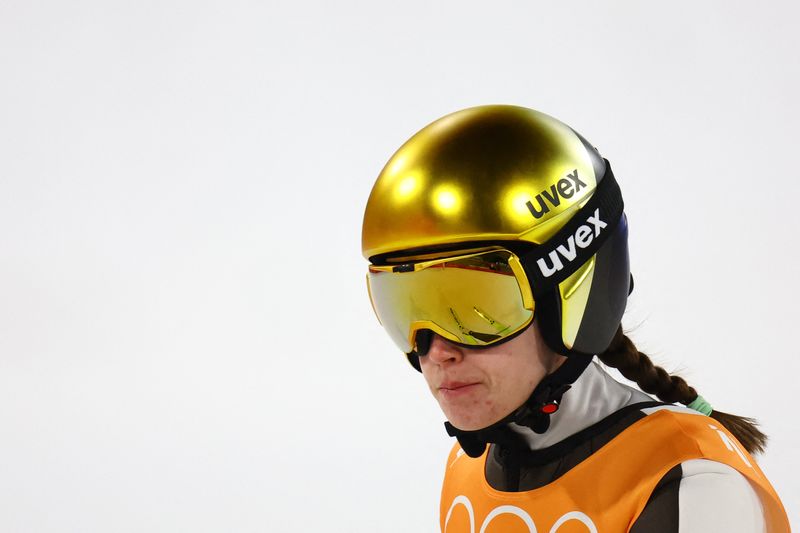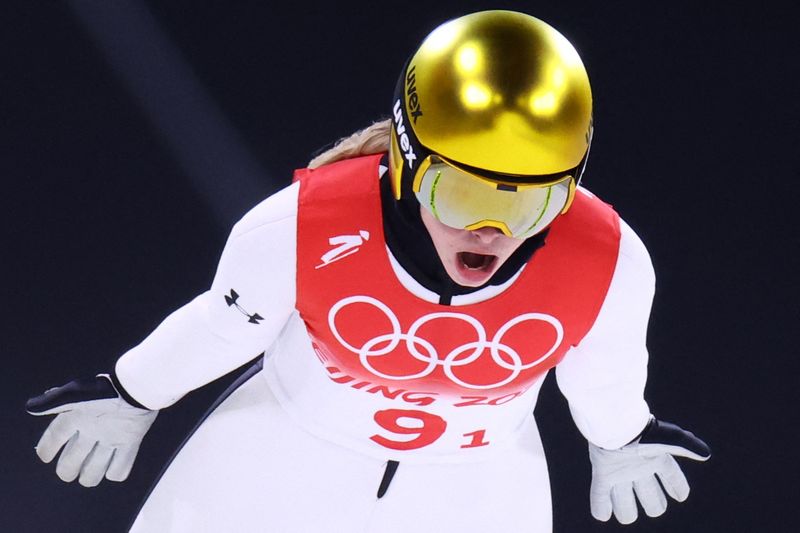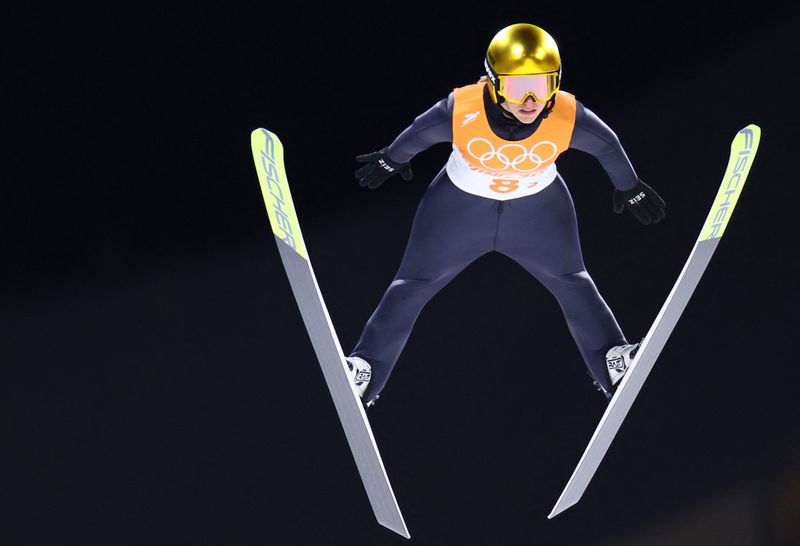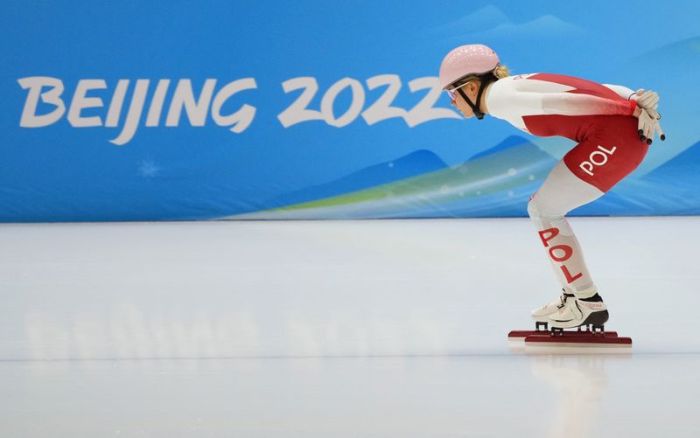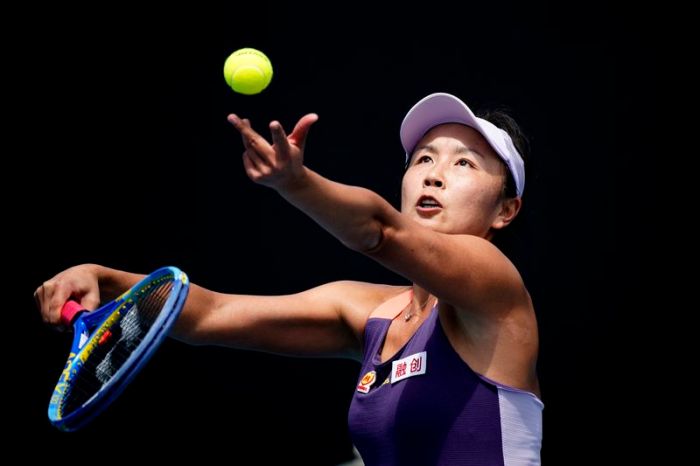ZHANGJIAKOU, China (Reuters) -Slovenia won the mixed team ski jumping gold on Monday but the big talking point of the event’s first appearance at the Olympics was a series of disqualifications that hit the favourites and meant world champions Germany failed to make the final.
Ursa Bogataj and Nika Kriznar, who took gold and bronze in the women’s individual event, helped Slovenia to gold alongside Peter Prevc and Timi Zajc.
Taking advantage of the chaos, the Russian Olympic Committee claimed the silver medal and Canada, rank outsiders, collected bronze.
Yet the final placings seemed almost an afterthought after a night of mayhem that featured disqualifications, reinstatements and widespread fury and confusion among the sport’s heavyweight nations.
Germany, who have won four successive world championships, failed to progress from the 10-team opening round after individual silver medallist Katharina Althaus was disqualified for a suit violation.
Japan, Austria and Norway – twice – also fell foul of the complex rules that link suits and skis to bodyweight in an attempt to remove any advantage that might be gained by athletes being lighter.
Officials of the impacted nations were quick to voice their frustration. “For me it is a puppet theatre. The entire season the suits have been an issue,” Germany’s national team coach Stefan Horngacher said.
“I am unbelievably angry and I don’t understand it. We had super jumps, you can only be disappointed with this.”
He said Althaus had worn the same suit as in Saturday’s individual event – though if her weight has dropped since then her suit would need adjusting.
“This is a parody, but I am not laughing,” Germany’s head of Nordic events Horst Huttel said. “It is outrageous that this happens with the four biggest ski-jump nations.”
Silje Opseth, one of the two Norwegians to suffer, said: “I am just shocked. I do not understand anything about what happened today.”
DIFFERENT METHOD
Her team mate Anna Odine Stroem, also disqualified, said officials had used a different method to measure their suits.
“It was a bit strange and didn’t conform to how it’s been done in the past,” she said. “It is a bit the result of me being in quarantine and not eating properly the whole week.”
Japan’s Sara Takanashi and Daniela Iraschko-Stolz of Austria were the others to suffer.
All five to be disqualified were female.
It was not the showcase organisers were hoping for. Although ski jumping has been part of the Olympic programme since the Games began in 1924, women joined the party only in 2014, but with only a normal hill competition while the men have normal, large and team medals to go for.
The mixed team event has been a world championship regular since 2013, with Germany winning the last four editions. They, Austria, Japan and Norway – the four teams to suffer DQs on Monday – have won all 15 available medals between them.
Slovenia did not care, however, as they continued their fabulous week, and the gold medal for Prevc completed his collection after he won individual silver and bronze in 2014.
“We tried not to think about the disqualifications but I think we still would have won so, yeah, it still feels great,” Prevc said.
“There was a lot going on but I was just trying to just be in the zone of jumping.”
Bogataj said she was nervous after the disqualifications. “I just tried to focus. These things happen in the sport – that’s the rules.”
The Canadians’ shock bronze, their first ever Olympic ski jumping medal, completed an incredible turnaround for 18-year-old Alexandria Loutitt who was disqualified after her first jump in Saturday’s individual event after weighing in 300 grammes too light.
“I was in tears on Saturday and I was in tears today for a very different reason, and it just shows what can happen in sport,” she said.
When asked if the disqualifications made it a bitter-sweet success for Canada, team mate Abigail Strate laughed, and said: “It was the sweetest success of all.”
(Reporting by Mitch Phillips, editing by Ed Osmond and Hugh Lawson)

